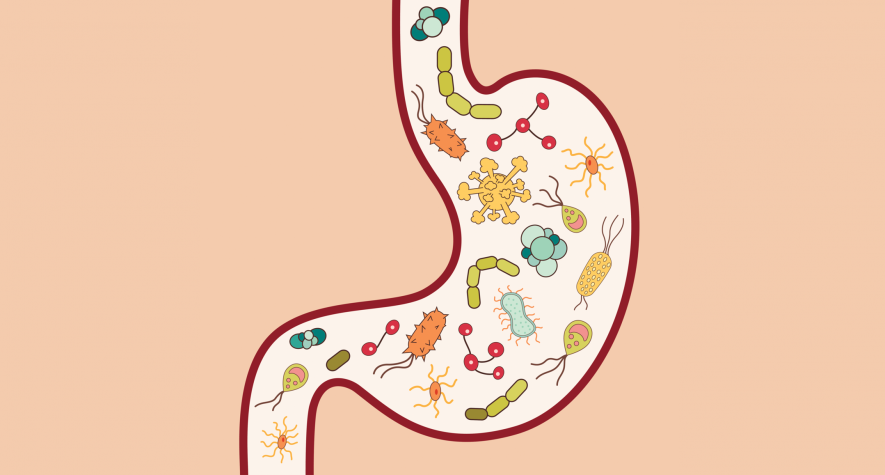Preserving Gut Microbes from Human Feces Could Preserve the Microbial Biodiversity, Help Treat Diseases

Even human feces do not have to go to total waste. Researchers are now planning to set up huge storage of gut bacteria extracted from human feces from different people around the world. This effort would not only preserve the biodiversity of the gut microbes for future generations, but also can be a great help to treat many diseases.
Global Micro biome Conservancy (GMC), an interdisciplinary consortium that has participation of 42 scientific and medical institutions worldwide, has been collecting gut bacteria from human feces from different people around the world.
The microbiome research has been mostly concentrated on Western, urban population—the population that eats processed foods, and uses antibiotics. On the other hand, the few studies done on the gut microbiome of people still following the traditional lifestyles show that they have a far diverse gut microbiome. This presence of this variety is also linked to the absence of certain diseases.
Eric Alm, a microbiologist from MIT, US, and a co-founder of GMC, said that as the traditional societies change their lifestyles, the microbial biodiversity also gets under threat. The bacterial strains that co-evolved with humans are now disappearing with the shifting of traditional lifestyles. He also said that rescuing and preserving the microbes could bring out new ways of treatments not only related to gut ailments, but also other ailments like asthma, allergy, obesity and diabetes—that are linked to the gut microbiome.
GMC, till date, could enhance its repository only to a limited level, with its Biobank now housing about 11,000 strains collected from about 40 people in seven countries. But, they are planning to increase their repository; with their budget it would be possible to travel 34 new countries by 2021 spanning Arctic to Africa, South America, Oceania, and Asia.
The 11,000 strains in GMC’s Biobank also reveal some novel strains. The 7,000 strains in GMC’s bank that came from North American people only contain five previously unknown genera. But, the remaining 4,000 strains from Africa and the Arctic have already yielded genera that were previously unknown, and the number of these unknown genera is 55.
GMC, as of now, is primarily focussed on gathering as many different strains of gut bacteria as possible. Mathieu Groussin, another co-founder of GMC, on his trips, distributes plastic bowls to collect poop. Groussin and his team collect the filled plastic bowls the next morning or in places within hour, where high fiber diets are prevalent. He then processes the poop samples in a makeshift laboratory in a car. Some portions of the poop samples are dried for DNA extraction and lipid content measurement. The rest parts of the samples are preserved in glycerol and send to MIT kept under -1900c to preserve the bacterial strains present on the samples. There, bacterial strains are isolated, growth media that could mimic conditions of the gut are developed and the strains are preserved in large freezers.
Presence of diverse kinds of strains among different populations is not the only difference that is present in gut microbes of different populations. Data from genomic analysis show that the rates of horizontal gene transfer between different strains present in one person are more in industrialised population in comparison to rural populations. The reason of it, possibly is due to higher environmental pressure like antibiotic use—according to Groussin, as he discussed in a conference in Heidelberg, Germany.
Microbiome preservation and legal issues
It is a serious legal issue concerning who owns the preserved microbiome. Microorganisms come under Convention on Biological Diversity, an international treaty ratified by all UN member states except the US. It was signed in 1992.
The treaty intends to ensure that any benefits from the genetic resources or any sort of R&D results out of it has to be shared with the government or community that provided them in the first place. GMC is trying to comply with this international norm. In each country that GMC visits for sample collection, it has done agreements that the stool samples and cultured bacteria strains remain property of the individuals that donated them, and they can be used only for non-commercial purposes.
Kieran O’Doherty, social scientist of University of Guelph, Canada, is of the view that scientists have bigger role to play rather than archiving the diversity of the human microbiome—they should sort out ways of preserving it where people can retain their sovereignty and natural resources.
Get the latest reports & analysis with people's perspective on Protests, movements & deep analytical videos, discussions of the current affairs in your Telegram app. Subscribe to NewsClick's Telegram channel & get Real-Time updates on stories, as they get published on our website.















